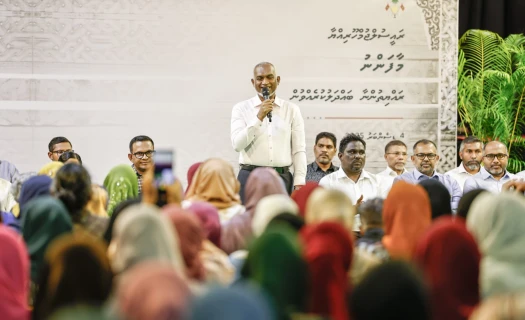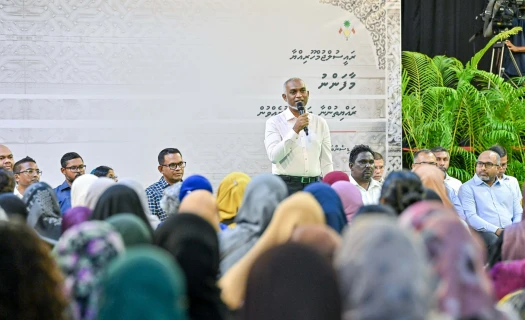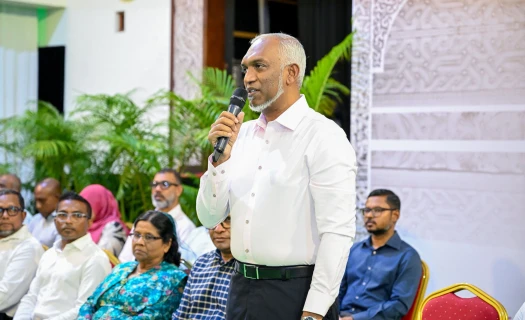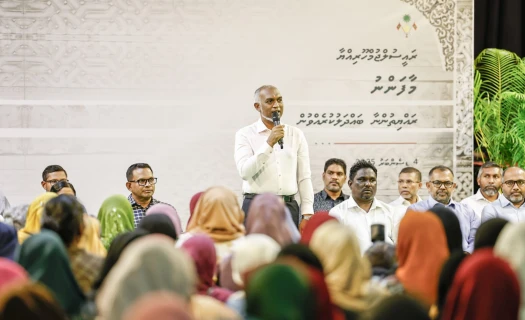Fri, 05 Dec 2025
|DHIVEHI
Government ends decades of neglect with affordable eye care solutions
04 Sep 2025
|
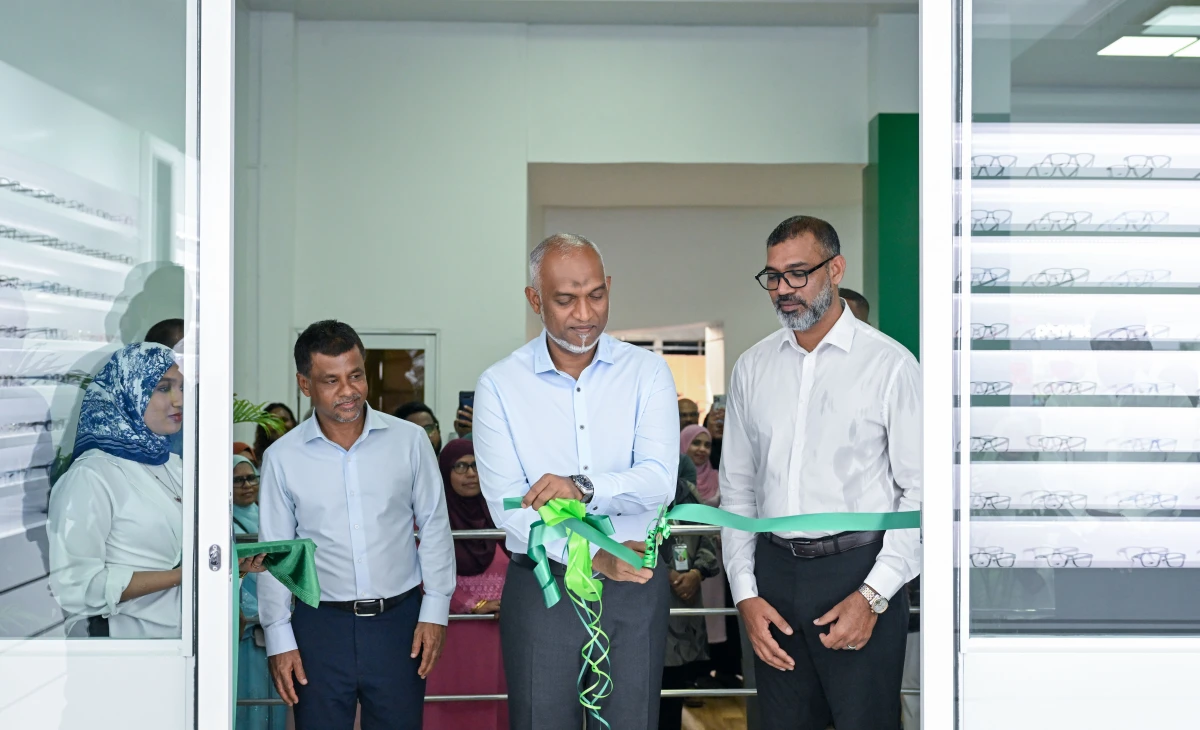
President Dr Mohamed Muizzu inaugurating MCGH Opticals in July 2025 --- Photo: President's Office
The Maldives has undergone remarkable change in recent decades. From being one of the poorest nations in the world, the country now records the highest GDP per capita in South Asia. Yet this rapid growth and urbanisation have also brought new health challenges, particularly lifestyle-related illnesses. Among these, vision problems have become increasingly common as people spend less time outdoors and are exposed to less natural light, a phenomenon seen globally with urbanisation and one that has taken root in the Maldives as well.
While prescription glasses and contact lenses can effectively address most vision problems, access in the Maldives has been limited by prohibitive costs. Basic frames often sell for between MVR 3,500 and MVR 4,000, prices that far exceed those in many other countries. For a large number of Maldivians, such expenses remain out of reach. As a result, many do not wear glasses despite needing them, and the consequences extend beyond personal health. Poor eyesight makes it more difficult for individuals to perform their jobs effectively, reducing earning potential and lowering overall productivity. In turn, this contributes to a decline in national economic output.
The scale of the issue is reflected in global research. The World Report on Vision, released by the World Health Organization (WHO) in 2019, estimated that 2.2 billion people worldwide live with near or distance vision impairment, with at least 1 billion of these cases being preventable or treatable. The report highlighted that affordability remains the biggest barrier to access. It also noted that the problem is being exacerbated by lifestyle changes, increased use of digital devices, rising screen time and ageing populations. According to the WHO, untreated vision problems cost the global economy approximately USD 400 billion annually in lost productivity. The report stressed that investment in eye care, including affordable access to prescription glasses, yields significant economic benefits.
Evidence from international studies supports this conclusion. Research found that farmers with untreated vision problems who were provided with free corrective lenses increased their productivity by 22 per cent in just 11 weeks. The results were not only immediate but also substantial. Further studies indicate that every dollar spent on providing glasses generates an estimated USD 36 in productivity gains. Such findings make clear that investment in vision care is not only a health issue but also an economic strategy.
Despite the importance of the issue, previous governments in the Maldives offered only limited support. Under earlier administrations, Aasandha provided MVR 1,000 every two years to help cover the cost of glasses, but this contribution was insufficient given prevailing market prices. The lack of comprehensive data on prescription glasses further reflected the limited policy attention given to the matter.
Since assuming office, President Dr Mohamed Muizzu has committed to provide a lasting solution. In June 2025, the Government increased the Aasandha allowance for glasses to MVR 2,000. In just one year, 36,950 Maldivians received support under Aasandha, with Government spending surpassing MVR 36 million.
Recognising the need for structural solutions to inflated market prices, the Government also opened a dedicated facility, MCGH Opticals, to provide affordable and accessible optician services to the public. The facility provides free glasses to citizens, ensuring affordable access to corrective lenses and addressing a long-standing public grievance. This initiative is not an attempt to interfere in private business, but rather a deliberate policy designed to relieve households of a heavy financial burden and to protect national productivity.
By expanding access to affordable vision care, the Government’s measures are expected to improve both individual wellbeing and economic performance. Vision correction is not a luxury but a necessity for social and economic participation. The steps taken under President Dr Muizzu’s Administration demonstrate an understanding that improving public health and supporting productivity go hand in hand. Investing in eye health ensures not only better quality of life for citizens but also stronger foundations for national prosperity.


Popular News

